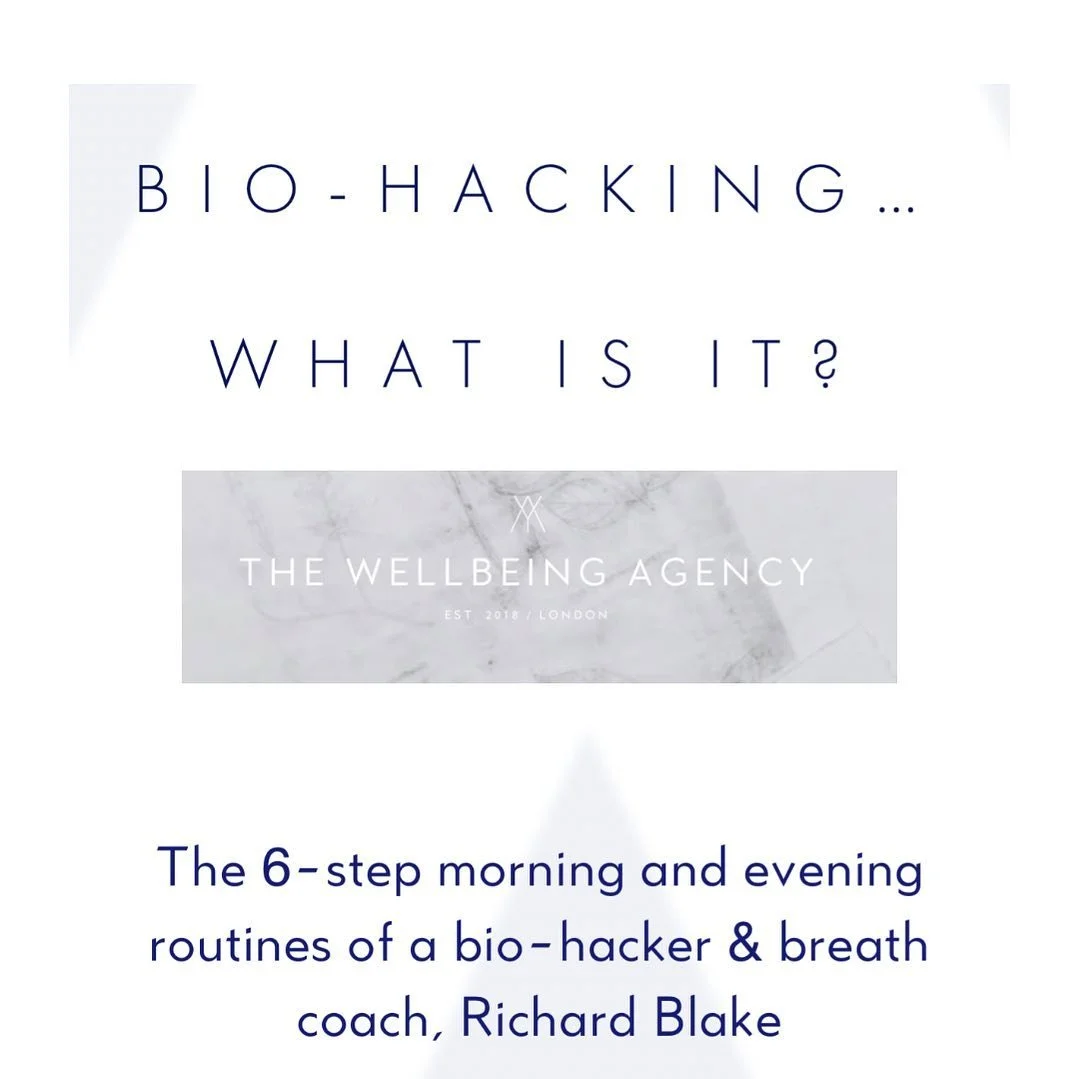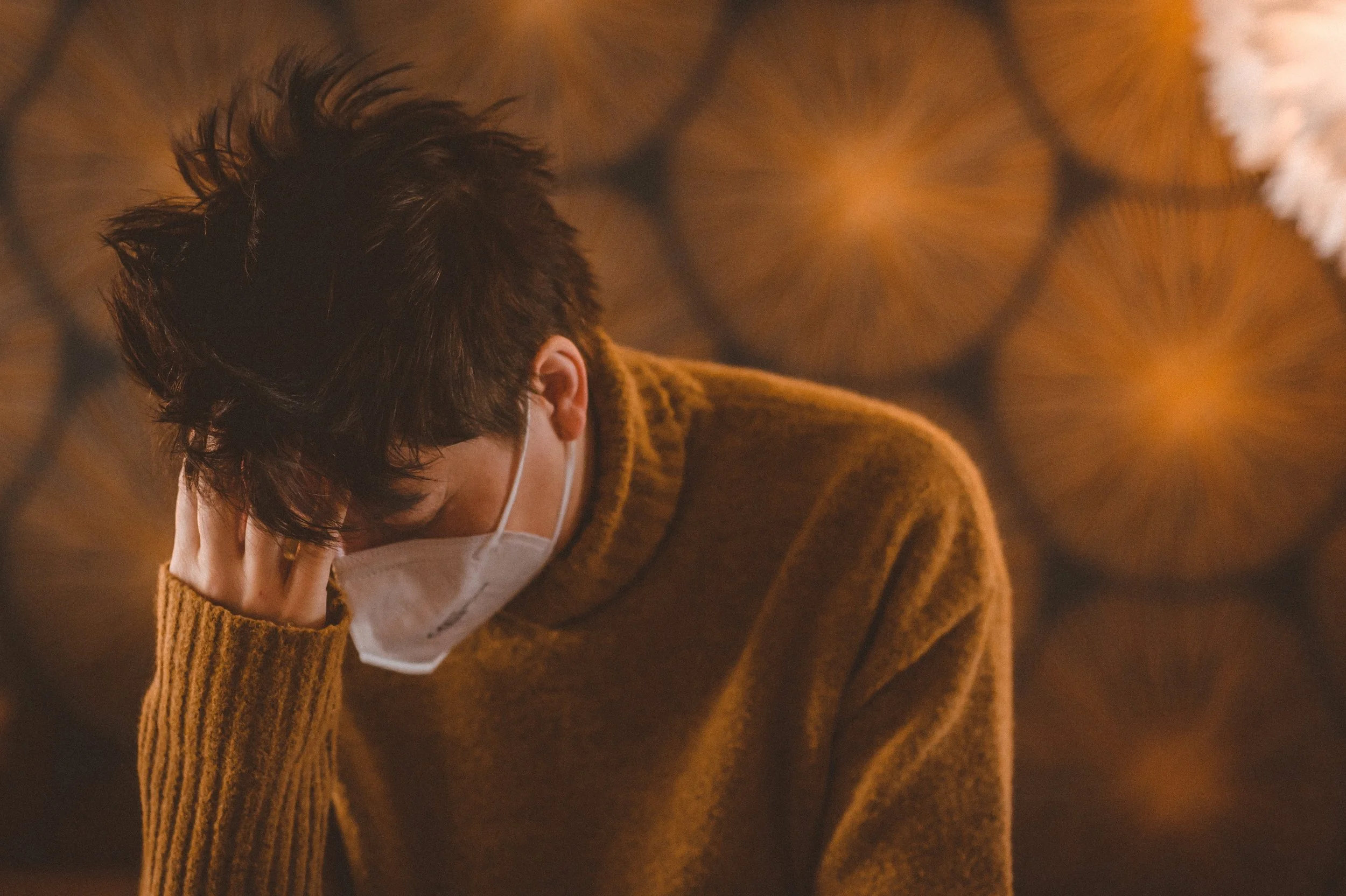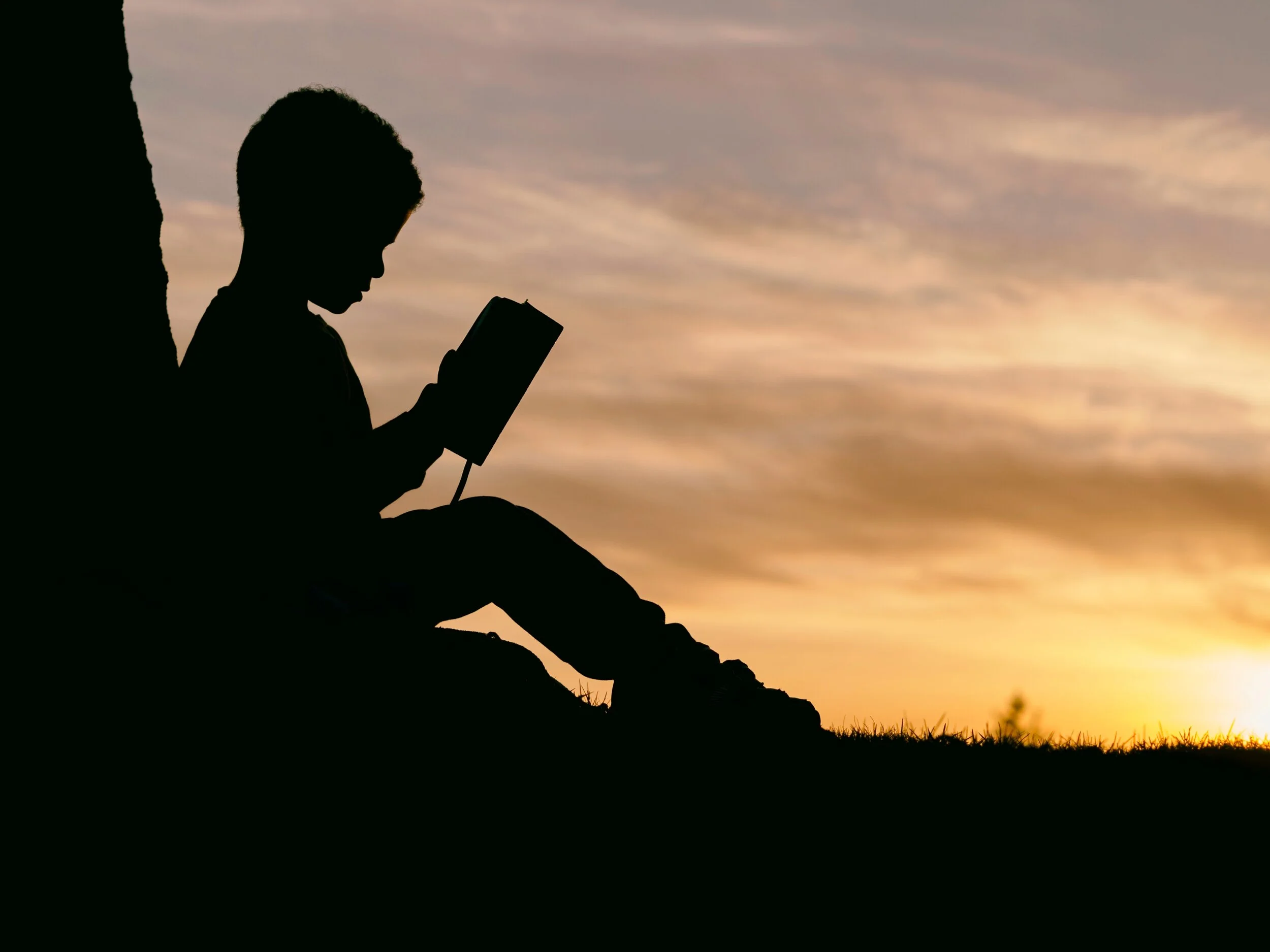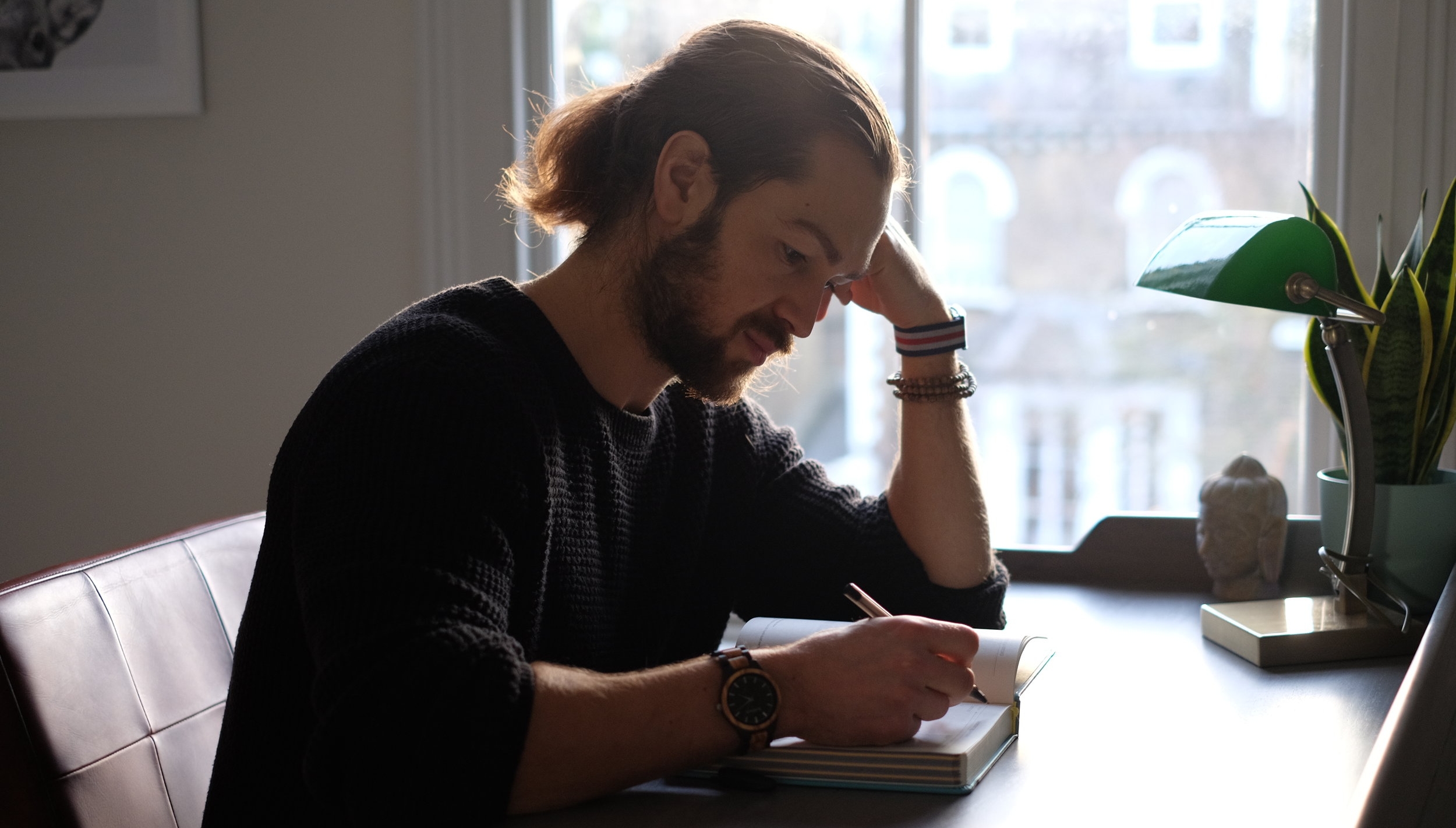
Mindful Meanderings: A Trek Through Meditation, Dark Tourism, and the Pursuit of True Contentment
Discover the transformative power of meditation, insights from global travels, and the impact of geopolitical dynamics on wellness in this captivating episode of 'Laughing Through the Pain' with guest Mike Richards, author of 'The Travelling Ape.' Dive into our in-depth discussion on navigating the complexities of modern life through meditation, personal development, and understanding the world around us. Whether you're seeking to enhance your mental health, gain perspective from global experiences, or explore geopolitical insights, this episode offers valuable lessons and practical advice for anyone looking to enrich their journey towards wellness. Tune in and explore how laughter, mindfulness, and curiosity can guide us through the pain towards a more fulfilled life.
In a world that seems to race by at an ever-increasing speed, finding a moment of tranquility can be like discovering a rare gem. This pursuit of serenity and understanding of our inner workings is the crux of our latest podcast episode, featuring Mike Richards, a seasoned meditation instructor and the author of "The Travelling Ape."
In this enlightening conversation, Mike leads us through the intertwined pathways of personal contentment, the impacts of meditation, and the surprising revelations of dark tourism.
Embarking on this auditory expedition, we're first transported to the serene lifestyles of Bhutan, where Gross National Happiness is not just a concept but a lived reality. Bhutan stands as a beacon of what societal contentment can look like when a country values well-being over wealth. The community-driven life in Borneo presents another facet of happiness, one deeply rooted in social connections and mutual support, defying the typical Western chase for economic development.
Mike's anecdotes provide a profound comparison, shedding light on the stark differences in societal structures and their respective quests for happiness.
The conversation then ventures into the respect-imbued culture of Japan, where honor and esteem form the bedrock of societal interaction. The contrast between Japan's rich cultural tapestry and the individualistic approach of many Western societies serves as a reminder of the diverse methods employed across the globe in the search for contentment. Here, Mike delves into the idea of baseline happiness and how meditation can play a pivotal role in enhancing our innate sense of well-being, irrespective of external circumstances.
As we navigate through the podcast, Mike confronts the controversial allure of dark tourism, challenging the listener to consider the empathetic understanding that can be garnered from visiting sites marred by tragedy. This exploration of destinations that resonate with historical suffering is not only an exercise in empathy but also a reflection on the human condition. Mike shares his experiences in countries with oppressive regimes, offering a perspective that transcends the often one-dimensional portrayals in the media.
Delving deeper into the philosophical, the discussion touches on the enduring impact of delayed gratification. Here, the legendary marshmallow test is used as a springboard to discuss how meditation can significantly bolster focus and productivity, particularly in an era dominated by distractions. Mike shares his insights on the importance of savoring achievements before diving into new endeavors, offering a teaser of his upcoming work that promises to delve further into personal development.
In closing, the episode leaves listeners with a profound quote from Mike's book, encapsulating the essence of growth and happiness. This episode promises not only to inform but also inspire a reevaluation of one's approach to life's many adventures. It beckons us to consider the quiet power of meditation and mindfulness, inviting us to explore the vast potential within and without, ultimately guiding us on a journey toward true contentment.
As we part ways with our listeners at the end of this episode, it is clear that the topics discussed resonate far beyond the confines of the podcast. Mike Richards' insights into the global pursuit of happiness, the therapeutic effects of meditation, and the lessons learned from dark tourism form a rich tapestry of knowledge. This episode is a testament to the profound impact of mindful exploration on our quest for a serene existence in a world of constant motion.
Show Notes:
Episode Overview:
Introduction of Mike Richards (00:03 - 02:03): Background, work, and overview of his contributions to wellness, meditation, and understanding geopolitical risks.
Key Highlights:
Meditation as a Tool for Wellness (02:03 - 04:48):
Insights on starting with meditation, its myriad benefits, and integrating it into daily routines for improved mental health and productivity.
Learning from Global Travels (04:48 - 14:21):
Mike shares his global travel experiences, emphasizing the lessons on happiness, community, and the concept of "dark tourism."
Geopolitical Insights (14:21 - 22:51):
The significance of staying informed on global affairs and the impact of geopolitical risks on daily life.
The Travelling Ape (22:51 - 23:27):
Details about Mike's book, the writing process, and its impact on readers.
Personal Development Strategies (23:27 - 33:45):
Mike outlines his seven key precepts for happiness, including embracing meditation, letting go of the past, and the thoughtful contemplation of death.
Links Mentioned:
The Travelling Ape on Amazon
https://www.amazon.co.uk/Travelling-Ape-Everywhere-Geopolitics-Happiness/dp/1739366956
https://www.dharma.org/
Closing Thoughts (33:45 - End):
Reflections on the importance of wellness practices, understanding our global interconnectivity, and the journey of personal growth. Mike offers parting advice for those embarking on their path to wellness.
This episode is packed with insightful discussions, practical advice, and Mike's personal anecdotes that illuminate the multifaceted journey of navigating wellness in today's complex world. Whether you're a seasoned meditator, a travel enthusiast, or someone curious about geopolitical dynamics, there's something in this episode for you.
Remember to follow us on and leave a review. Your feedback helps us grow and improve and we may even read your review out on the show. Until next time, stay curious, open-minded, and keep laughing through the pain.
Listen the episode here
Explore meditation, travel insights, and geopolitical dynamics with Mike Richards on 'Laughing Through the Pain.' Learn how wellness, laughter, and curiosity can navigate modern life challenges
Follow us on Instagram @TheBreath_Geek
Breathing Through the Chaos: Unveiling the Healing Power of Breathwork with James Dowler
Explore the transformative power of breathwork with James Dowler in our latest podcast episode. Dive into how this ancient practice offers profound benefits for mental clarity and well-being, and learn about its potential in treating stress, anxiety, and trauma. Join us in this enlightening conversation on the evolving landscape of mental health treatments, where breathwork emerges as a crucial component in holistic healing
Embarking on a journey of healing and self-discovery can often lead us down paths unexplored, and one such path is the practice of breathwork. Our recent podcast episode featured James Dowler, a breathwork guru, who shed light on how this ancient practice could offer solace amidst the chaos of modern life. Dowler's expertise in breath regulation and mindful techniques is not just about temporary relief but about tapping into the profound impact breath has on our mental clarity and well-being.
The episode provides a compelling narrative that weaves James's personal experiences with the teachings of breathwork, revealing the transition from intense, trauma-focused techniques to those that gently nurture the nervous system. This approach is particularly relevant today, as society grapples with heightened stress and anxiety. Dowler highlighted the role of downregulating breathwork for those in a state of sympathetic hyperarousal – a common consequence of our fast-paced lives.
However, with the wellness industry offering a myriad of techniques, the episode didn't shy away from addressing the critical need for rigorous training for practitioners. As the Global Breathwork Practitioners Alliance strives to regulate the industry, our conversation with James emphasized the responsibility of ensuring that practitioners guiding individuals through emotional depths are well-equipped and passionate about their craft.
Delving deeper into the physiological and emotional impacts of breathwork, the podcast explored the concept of transient hypofrontality, the mental state where breathwork can reduce the prefrontal cortex's grip on our emotional pain. Drawing parallels with the effects of psychedelics, we discussed the potential of breathwork in treating conditions such as anxiety, depression, and trauma. Despite the acknowledgment that breathwork is not a one-size-fits-all remedy, its integration into daily routines as a self-administered practice for nervous system regulation was advocated.
As the episode progressed, we compared the traditional psychotherapies with the innovative realms of psychedelics and breathwork. While the efficacy of treatments like Cognitive Behavioral Therapy (CBT) was questioned due to high relapse rates, the potential of breathwork and psychedelics to offer more effective solutions was highlighted. It became clear that the future of mental health treatment may lie in the integration of these practices into mainstream healthcare, providing accessible and cost-effective options for all.
In conclusion, the podcast was a reminder of the ongoing evolution of mental health treatments and the power of ancient practices in modern times. James Dowler's insights served as a beacon for those navigating the complexities of healing, emphasizing that the journey to wellness is both personal and universal. As we wrapped up the episode, we invited listeners to continue the conversation, emphasizing the value of feedback in shaping future content. This episode was not just a dialogue but a call to action for a deeper understanding of breathwork's role in holistic healing.
Click the following link to listen to the podcast.
"Wellness or Wellmess? The Hilarious Truth Behind Health Hacks"
Dive into the humorous side of wellness with Richard and Andy as they debunk health myths and explore the curious world of biohacking. This light-hearted journey offers laughs and insights into the often misunderstood realm of health trends.
In the latest episode of "Laughing Through the Pain Away," hosts Richard L. Blake and Andrew Esam embark on an enlightening journey, tackling the ever-expanding universe of wellness fads, biohacks, and health myths. With the wellness industry booming and new trends emerging daily, it's become increasingly difficult to distinguish between what's beneficial and what's mere snake oil. That's where Andrew, a curious chap with a penchant for skepticism, and Richard, a knowledgeable breathworker and PhD Candidate, come in to guide us through the chaos with humor and credible advice.
The episode begins with an introduction to the hosts and their motivations behind the podcast. Andrew's background in psychology and natural inquisitiveness make him the perfect foil to Richard's depth of knowledge in breathwork and wellness. Together, they aim to shed light on the pitfalls of the wellness industry and the importance of maintaining a healthy dose of skepticism. They also hint at future episodes featuring expert guests who will delve deeper into wellness and breathwork topics.
Weekly features like Andy's wellness tip and Richard’s BS of the week segment serve to educate listeners while calling out dubious practices within the life coaching industry. Richard shares an anecdote about a suspicious life coach nomination, reflecting the unregulated nature of the industry and the need for consumers to be discerning. This segment underscores the podcast's commitment to time-saving and credible information, answering frequently asked wellness and psychology questions.
The hosts then discuss the importance of social media engagement, sharing their experiences with EMF mitigation advice and responding to public comments. They advocate for simple wellness tips like using wired headphones and turning off Wi-Fi at night, addressing misconceptions about these actions being overly time-consuming. The episode emphasizes the importance of managing our lifestyles with technology use while maintaining a balance between well-being and convenience.
Further into the episode, the conversation turns to the unfortunate stereotypes associated with certain physical traits, the middle ground in EMF exposure, and the social etiquette of phone use. The hosts engage in a respectful and informative dialogue with the audience, aiming to unravel complexities and enhance understanding of wellness topics.
The episode concludes with a preview of upcoming guests, including James Dowler on breathwork strategies for anxiety, Mike Richards on geopolitics and meditation, Alex Manos on biomarkers, and Georgia Ems on corporate wellness. Each guest promises to offer their unique expertise, contributing to a well-rounded discussion on health and wellness.
In summary, the episode is a masterful blend of humor and hard facts, as Andrew and Richard bust myths and offer sound wellness wisdom. Their approachable and light-hearted banter makes the podcast not only entertaining but also a valuable resource for anyone interested in improving their wellness knowledge.
Stay tuned for future episodes of "Laughing throughthe Pain Away," where the duo will continue to explore the funny side of fitness facts and fallacies, making wellness wisdom accessible and enjoyable for all. Whether you're a wellness enthusiast or just dipping your toes into the world of health and fitness, this podcast is a must-listen for a dose of laughter and learning.
The dangers of visualization and manifestation.
Why have the practices of visualization and manifestation become so popular, and why might they be dangerous?
Why have the practices of visualization and manifestation become so popular, and why might they be dangerous?
The English philosopher G.K. Chesterton once said that when a person stops believing in God, they will believe in anything (Society of Gilbert Keith Chesterton, 2021). This same process seems to happen with many New Age or spiritual but not religious people. Visualization as a practice of contemplation has many different aspects to it. This essay will look at how visualization is used in the practice of manifestation and whether there is any truth to claims that a person can consciously create their reality through an invisible force of energy called the law of attraction. While some paranormal activities seem to have genuine effects without a scientific explanation, that does not mean we should accept all supernatural beliefs without applying a filter of critical thinking. Practices of visualization and manifestation have many components with verifiable benefits, but sprinkling in the extra layer of magical thinking does not hold up to scrutiny. In addition, we will discuss the coaches and wellness practitioners abusing this spiritual tradition for financial and egoic gain.
Is psychedelic integration another wellness industry scam?
The industries of talk-based therapy and anti-depressants have consistently failed to demonstrate significant benefits to mental health in trials. The life-coaching industry is similarly ridiculed with hypocrisy and fraudulent activity. With the impending psychedelic revolution in mental health treatments, people are starting to carve out niche job opportunities for themselves, like the psychedelic integration coach. Something needs to be done to ensure the failings of the life-coaching and psychotherapy industries do not transfer over to the field of psychedelics.
Click here to read the article on Medium.com
Loneliness and suicide in men are increasing — what can mental health professionals do about it?
In the U.K. in 2020, there were 5,224 suicides, and 75.1% of these were men (ONS, 2020). Many causal factors lead to suicide, but this article will focus on addressing male loneliness to help prevent suicide. This article is not an attempt to argue that men are lonelier than women. The focus of the article is on the problems faced by men in Western society and what can be done to help. We will consider how culture, the media, and a lack of spirituality may be contributing to this problem. We will also consider how traditional psychotherapy may be unsuitable for men and how it can be made more useful. We may need to look away from traditional forms of 'talk therapy' to incorporate approaches that do not solely focus on the intellect, like the body, the field, spirituality, breathwork, and psychedelic therapy.
In the U.K. in 2020, there were 5,224 suicides, and 75.1% of these were men (ONS, 2020). Many causal factors lead to suicide, but this article will focus on addressing male loneliness to help prevent suicide. This article is not an attempt to argue that men are lonelier than women. The focus of the article is on the problems faced by men in Western society and what can be done to help. We will consider how culture, the media, and a lack of spirituality may be contributing to this problem. We will also consider how traditional psychotherapy may be unsuitable for men and how it can be made more useful. We may need to look away from traditional forms of 'talk therapy' to incorporate approaches that do not solely focus on the intellect, like the body, the field, spirituality, breathwork, and psychedelic therapy.
Click here to read the full article.
Carl Jung - Prophet or schizophrenic
Check out my latest article published on Medium.com and learn about Carl Jung’s 12 visions that may have been predictors of WWI
https://richard-l-blake.medium.com/jung-prophet-or-schizophrenic-4521081fc65d
Narcissism and ayahuasca. Can plant medicines cure the most incurable personality disorder?
Click here to read my latest article published on Medium.com on how ayahuasca can be used to tackle the public health crisis of our time.
https://medium.com/@richard_53330/narcissism-and-ayahuasca-can-plant-medicines-cure-the-most-uncurable-personality-disorder-748f2799e58a
Unschooling for the future of your children's education and all our mental health services.
How can we update our education system from its anachronistic industrial revolution roots.
In this reflection piece, I will discuss my frustrations with conventional schooling and university education. I discuss why there is a need to reform mental health practitioner training. As well as how the unschooling movement has lessons that could be learned and applied to conventional education and what the advantages and disadvantages of unschooling might be.
Before my enrollment at The California Institute of Integral Studies (CIIS), I was pursuing a Masters in Psychotherapy at Regent’s University London (RUL) in the United Kingdom. After two years of attendance at RUL, I chose to transfer to CIIS due to my frustrations with the psychotherapy course. My motivations for studying psychotherapy were so that I could positively impact the mental health of individuals. However, my frustrations grew as I realized we were learning a failing system for dealing with the mental health crisis. I came across research by Khan et al. (2013) that showed that psychotherapy was no more effective than a placebo in improving mental health conditions. This research confirmed to me that I should turn my attention to improving psychotherapy itself.
For psychotherapy to improve, there is a need to change the university education system where it is taught. I was attracted to CIIS by the spirit of activism that the institute aspires to. The module on Knowledge Work and the Modern Academy has demonstrated to me how CIIS is not content to simply perpetuate the colonial method of teaching whereby the student is seen as a bucket that merely needs to be filled with information (Segre, 2015). I felt a strong sense of relief in reading about Wilhelm von Humboldt and his realization that students have “the need of a free environment for the growth of knowledge” (Segre, 2015, p. 4). Furthermore, Humboldt thought that the university’s teacher’s work “should be at the service of the growth of knowledge” (Segre, 2015, p. 174). The idea that we as students should be contributing to the growth of knowledge inspires me to see my work as a contribution to something larger than myself and thus gives me more motivation to work.
At RUL, I realized that we were taught that a psychotherapist is a person who is sought out when a member of society falls off the hamster wheel of modern Western culture. The psychotherapist must then help to get the person back on the hamster wheel. The university gave no attention to the question of whether or not the hamster wheel was where the client should be. Nor how the hamster wheel might be made more accommodating to members of the society, so they don’t fall off in the first place. Estimates from (Merikangas et al., 2010) suggest that one in four people in the United States of America will have a mental health issue supporting the notion that society's mental health problem is a serious one that requires deep examination.
An obstacle to improving education that universities like RUL have is that their syllabus constrains them. When I raised my concern with RUL professors that we were learning a failing system, they acknowledged this. However, they responded that we had a syllabus to learn and could not deviate into topics like this. They stated that exams and assessments needed passing for the student to be deemed competent enough to be licensed psychotherapists. I agree
(DiClementi, 2021) that certain professions such as brain surgeons and airline pilots should be required to demonstrate knowledge and skills relevant to their roles for the safety of all, but more freedom for deviation is necessary for the fields of psychotherapy and psychology. This deviation is especially true given the need for reform of mental health practices and society’s creation of mental health problems in individuals.
Segre (2015, p. 176) supported this complaint about rigidity to syllabi in his critique of the post-Humboldtian academic. Segre says that students have become “more an encyclopedic type of scholar than an innovator” and “remain excessively subject to professors and dependent on the textbook in vogue; they are more inclined to conform than to grow intellectually and are, above all, career-oriented.” At RUL, the students are rewarded simply for learning the material and punished for attempting to reform the system. Perhaps RUL believes that once a student graduates into the psychotherapy profession, they will then be able to improve the domain from that vantage point. However, in the Humboldtian university’s spirit, the best area for reform would be the university. This domain could be where ideas are shared and evolved in a collaborative environment. Once a psychotherapist is in practice, they may be less likely to have the time or the inclination to focus on reforming a profession that they are reliant on for their livelihood.
Segre (2015, p. 149) shares how Sir Francis Bacon had similar criticisms of universities in the 16th Century. Segre states that Bacon saw universities as “excessively oriented toward the teaching of some professions and hostile to innovation; [the university] neglects universal principles and discourages creativity...and there is no exchange of knowledge among institutions.” The modern university grew out of the Industrial Revolution’s circumstances, which has led to a competitive environment where universities are discouraged from sharing their knowledge because it might give a competing university an advantage.
Sir Ken Robinson (2013) agrees that our education system has developed this rigidity because it was “designed in the educational culture of the enlightenment and the economic circumstances of the industrial revolution.” Robertson believes education’s objective is “essentially about conformity, especially as you look at the growth of standardized testing and standardized curricula.” Popper (Popper, 1986) shares these sentiments and explains that testing is prohibitive to learning because you cannot quantify knowledge, and it is even harder to measure it. While universities spend their time trying to measure their students, they block the progress of knowledge and creativity to society’s detriment.
Robinson (Robinson, 2013) demonstrates how our education system is “modelled on the interests of industrialization and in the image of it” by giving the following examples. Schools and universities are like factories with their “ringing bells, separate facilities, specialized into separate subjects… [and organized into] batches...by age group”. While universities give more freedom to students than schools, there is still a great deal of university education rigidity. Robinson’s ultimate motive is to clarify how important it is to give students more freedom and creativity in their learning. The Unschooling movement demonstrates the effectiveness of this style of education.
Unschooling has grown in recent years out of frustration with conventional schooling. The educational theorist John Holt coined the term in the 1970s (Gray & Riley, 2015). Unschooling is a type of home-schooling that does not follow a curriculum (Khan et al., 2012). It does not try to replicate conventional schooling but in a home environment. The child directs their course of learning, and there is no separation between living and learning. The process of learning is done through living. You can see similarities between Unschooling and the Humboldtian university in Segre’s (2015. p. 174) explanation that students in Humboldtian universities “were free to create their own curricula according to their personal interests and intellectual or professional aspirations.” A longing for the return to this Humboldtian ideal is seen in this growth of the Unschooling movement.
Estimates suggest that approximately two million children are home-schooled in the United States (National Center for Education Statistics., 2013). Of these two million, it is estimated that 10% of these children consider themselves unschooled (Gray & Riley, 2013).
In Gray & Riley’s (2013) survey on unschooling, they found that many parents were influenced to abandon traditional schooling because of John Taylor Gatto’s work. Gatto was a former “‘New York State Teacher of the Year’ who left teaching because he was convinced that compulsory schools, no matter how one taught within them, were doing more harm than good.” This statement resonates strongly with me concerning my time at RUL. By perpetuating a failing system of psychotherapy, we were not only wasting our time and money but were also harming future clients who will not receive the optimal form of therapy. The sense I got from RUL was that they did not want to sway from mainstream modes of teaching due to fears of a loss of funding or loss of certification.
Unschooling has become a counter-cultural movement, and one of its biggest obstacles is society’s fear of change. In Gray & Riley’s (2013) research, they found that the parents of unschooled children found the most significant challenge “was that of overcoming feelings of criticism, or social pressure, that came from others who disapproved.” If more parents were made aware of the limitations of conventional schooling and the strengths of Unschooling, perhaps their attitudes would change.
A quote from a teacher who participated in Gray & Riley’s (2013) study illustrates my sentiments about conventional education and its damage to students. This teacher removed his children from traditional schooling because “it pained him that so many students had simply given up all enthusiasm for learning” by the time they reached college. And that “the kids had either learned to jump through the hoops or had completely stopped trying." While it may be that parents of conventionally educated children are aware of the limitations of this type of education, there is a similar fear of what Unschooling would do to their children.
One of the most common fears is that unschooled children will be socially awkward. Gray & Riley (2013) found that the parents of Unschooled children reported the opposite. The parents said that “their children were happier, more agreeable, or more socially outgoing than they would be if they were traditionally schooled.” In another study addressing the Unschooled children themselves, Gray & Riley (2015) found that there were just 3 out of 75 respondents who were not happy with their unschooling. These children reported that they did feel isolated but that this was because they were “in dysfunctional families with mothers who were psychologically depressed and fathers who were uninvolved.” This complaint shows that for Unschooling to be successful, the family environment needs to be supportive. For a child in a troubled household, even a low standard, conventional school may be a better place for them than their home.
Another fear of Unschooling is that the children’s academic standards will suffer. Again, the research confounds this notion by showing that homeschooled students outperform conventionally schooled students on every measure used, including standardized tests and grade point averages at university (Gloeckner, G. W., & Jones, P., 2013). However, it is essential to note that these researchers did not suggest a cause-and-effect relationship. It is possible that these children possessed above-average intellectual and social skills due to predisposed characteristics or other influences rather than merely their style of schooling. This research does at least address the fear that unschooled children would suffer from poorer educational outcomes (Ray, 2013).
A further limitation of this research is that these surveys only allowed participants who had had a minimum of three years of unschooling. Therefore, any family who could not adjust to or suffered adverse effects of unschooling could not have shared their negative experiences in the surveys.
A potential downside of removing a child from the traditional academic environment is that they would not contribute to the existing field of academic knowledge. Unschooling may create excellent artists or entrepreneurs, but it may detract talent from scholarly activities such as university-based research. While 80% of respondents to Gray & Riley’s survey went into higher education, the majority went on to creative and entrepreneurial jobs. The unschooled adults complained that they felt too constrained by the university's structures. However, this is more likely to be a problem with the universities than unschooling’s effects on the individual. If we take the Enlightenment’s idea that knowledge grows by building upon previous research (Segre, 2015), the unschooled child may miss out on this. Their separation and isolation from other students may mean that they cannot collaborate with others to grow knowledge. However, with the movement towards online learning, this may become less of an obstacle.
The impact of the COVID-19 pandemic is likely to see accelerated changes in styles of education. Parents have become accustomed to their children learning at home in an online environment. This change may be an opportunity to delve further into the benefits of an alternative learning method to conventional schooling. Unschooling may be too extreme for mainstream parents. But, perhaps schools and universities can learn the benefits of giving students more freedom and moving the learning style slightly away from its industrial revolution-based methods. This movement may increase students’ motivation and create a faster progression of knowledge growth to meet the demands of the mental health crisis.
References
DiClementi, A. (2021). Unschooling and The Future of Education with Lainie Liberti. The Bio-Hacking Secrets Show.
Gloeckner, G. W., & Jones, P. (2013). Reflections on a decade of changes in
homeschooling and the homeschooled into higher education. Peabody Journal of Education, 88(309-323)
Gray, P., & Riley, G. (2013). The Challenges and Benefits of Unschooling, According to 232 Families Who Have Chosen that Route. Journal of Unschooling and Alternative Learning, 7
Gray, P., & Riley, G. (2015). Grown Unschoolers’ Evaluations of Their Unschooling Experiences: Report I on a Survey of 75 Unschooled Adults. Other Education, 4(2), 8-32. https://www.othereducation.org/index.php/OE/article/view/104
Khan, A., Faucett, J., Lichtenberg, P., Kirsch, I., & Brown, W. A. (2012). A Systematic Review of Comparative Efficacy of Treatments and Controls for Depression. Plos One, 7(7), e41778. 10.1371/journal.pone.0041778
Merikangas, K. R., He, J., Burstein, M., Swanson, S. A., Avenevoli, S., Cui, L., Benjet, C., Georgiades, K., & Swendsen, J. (2010). Lifetime prevalence of mental disorders in U.S. adolescents: results from the National Comorbidity Survey Replication--Adolescent Supplement (NCS-A). Journal of the American Academy of Child and Adolescent Psychiatry, 49(10), 980-989. 10.1016/j.jaac.2010.05.017
National Center for Education Statistics. (2013). Parent and family involvement in
education, from the national household education surveys program of 2012. U.S. Department of Education. http://nces.ed.gov/pubs2013/2013028.pdf.
Popper, K. R. (1986). Objective knowledge (Rev. ed. ed.). Clarendon Pr.
Ray, B. D. (2013). Homeschooling associated with beneficial learner and societal outcomes but educators do not promote it. Peabody Journal of Education, 88(324-341)
Changing education paradigms. Robinson, S. K. (Director). (2013).[Video/DVD] TED. https://www.ted.com/talks/sir_ken_robinson_changing_education_paradigms
Segre, M. (2015). Higher Education and the Growth of Knowledge (Kindle Edition ed.). Routledge.
